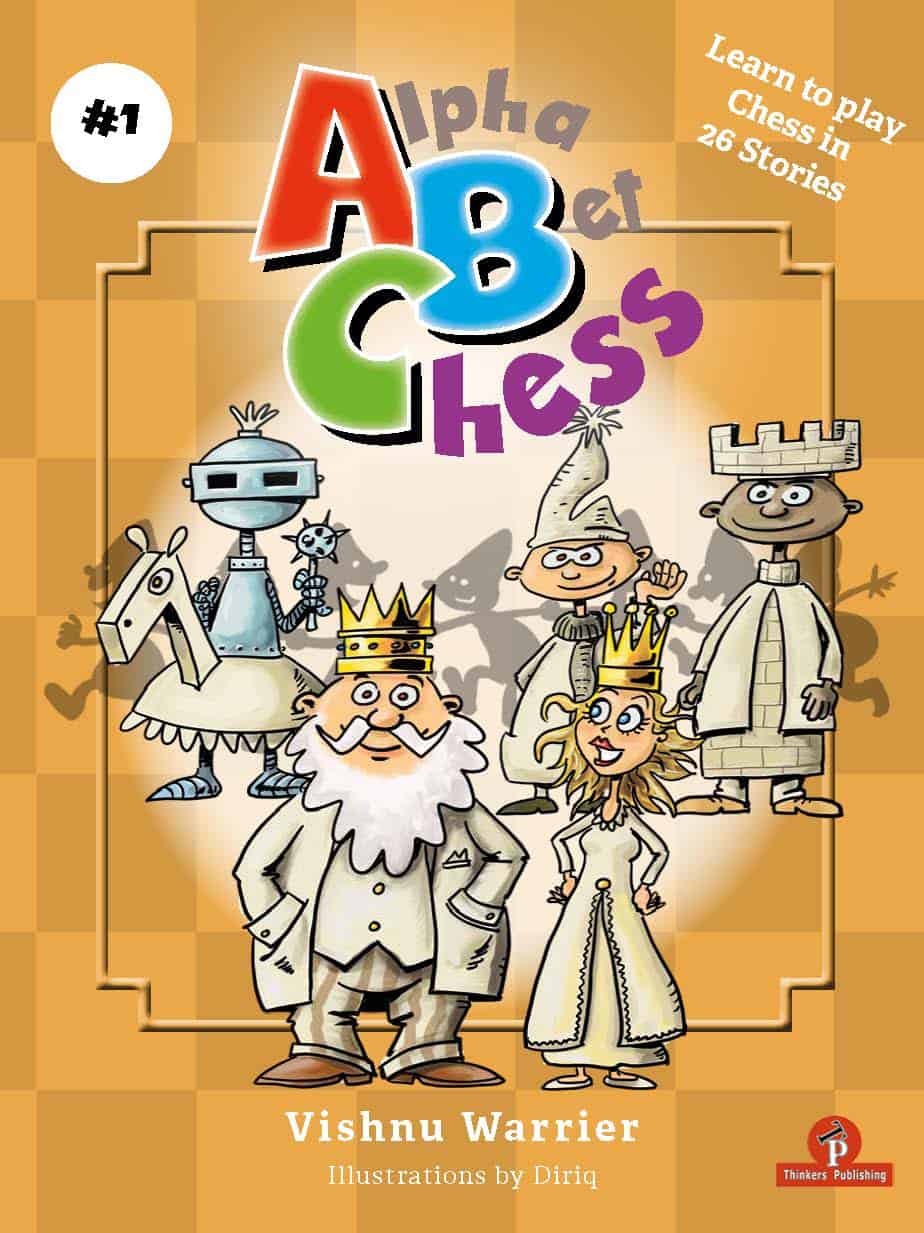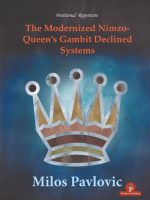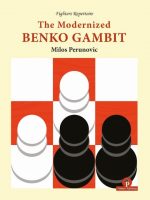Description
Dear Reader,
As a father, there’s nothing more fulfilling than sharing something you love with your child. For me, that something is chess. Ever since my son was born, I eagerly awaited the day I could introduce him to the game that has been a significant part of my life for over 20 years.
Chess has played a transformative role in my life, shaping the way I think, make decisions, and approach challenges. The game has instilled in me a sense of patience and discipline. Chess requires careful consideration of each move, teaching me to be patient and deliberate in my actions. It has shown me the value of learning from mistakes, as every loss in chess is an opportunity to analyze, reflect, and improve. Also, chess has helped me develop self-confidence and form lifelong relationships with people all over the world. It has taught me the importance of respect, sportsmanship, and the value of competing not just to win, but to learn and grow. My goal as a father and a chess player is to pass on these life skills to my son and to anyone who reads this book.
The idea for AlphaBetChess came to me one fall night in September 2023, while reading an ABC book to my son, who was 2 years old at the time. We were going through the letters together—A is for apple, B is for ball, C is for cat—when a thought struck me: why not create a fun, illustrated chess book to teach the ABCs using chess terms? At that moment, AlphaBetChess was born. As I began writing, I quickly realized that most chess books out there were either too complex or too dry for a young child. They lacked the playful illustrations and engaging text that make learning fun and accessible for little ones. I wanted to create something different—something that could capture my son’s imagination while slowly introducing him to the world of chess. AlphaBetChess became my way of combining early childhood learning with the game I love, creating a book that’s approachable, educational and entertaining for young minds.
Each letter of the alphabet is paired with a key chess term, such as A for Attraction, B for Bishop, and C for Checkmate, brought to life through colorful illustrations and whimsical stories. This isn’t just a book about chess—it’s a book about discovery, designed to captivate children’s imaginations while teaching them the basics of both the alphabet and chess.
Creating AlphaBetChess was a collaborative effort, and I couldn’t have done it alone. I’m incredibly grateful to the talented illustrator Dirk Dewitte, whose wonderful artwork brings each page to life with color and charm. His illustrations make the book not only educational but also visually captivating for young readers. A special thank you also goes out to Daniel Vanheirzeele of Thinkers Publishing, whose support and expertise were instrumental in bringing this book to life. Without their contributions, AlphaBet Chess would not have been possible.
This book is the first in what will be a 10-volume series, set to be released over the next few years. While this initial volume is aimed at younger children, the series will grow with them, offering more advanced chess concepts and strategies as they develop their skills. Whether it’s learning key chess openings, exploring the global nature of the game, or studying the moves of legendary players, each book in the AlphaBet Chess series will guide young readers through every stage of their chess journey.
My goal with AlphaBetChess is not only to teach the basics of chess but to inspire a lifelong love of learning and playing. I see AlphaBetChess as a unique opportunity to bring families together. It’s a book that parents and grandparents can share with their children, creating lasting memories while introducing them to the game of chess.
Thank you for joining us on this journey. I’m excited to see where it will take us and look forward to the impact AlphaBetChess will have on young minds around the world.
Vishnu Warrier, September 2024, Dallas – USA.
- What inspired you to create Alphabet Chess using stories as a teaching method?
I wanted to create an engaging way for learners to connect with chess concepts through narratives. Stories help humanize the abstract elements of the game, making it easier for readers to grasp complex strategies in a relatable manner. As a father, I wanted to create a fun and engaging chess book that would ignite the same passion for the game in my son that I’ve always had. - How did you come up with the idea of combining chess lessons with storytelling?
I’ve always believed that storytelling has the power to transform learning. By embedding chess lessons into stories, I could make each concept feel more alive and memorable, especially for younger audiences. The idea of Alphabet Chess occurred one evening when I was reading a book to my son “A is for apple, B is for ball, C is for cat, etc.” As I was reading, my mind began to wonder and I thought to myself, why is there not a chess book like this that is fun and engaging for children? Hence, I began writing the book and Alphabet Chess was born. - Who is your target audience for the book—beginners, children, or experienced players?
The primary audience is beginners and children, though experienced players may also find it refreshing as a way to teach chess to others or rediscover fundamental concepts. - What challenges did you face while writing the book, particularly in balancing narrative with chess instruction?
The main challenge was ensuring that the stories were both engaging and educational. I had to carefully balance creativity with technical accuracy so that the narrative never overshadowed the lessons. - Can you share how you structured the 26 stories to cover the essential aspects of chess?
Each story corresponds to a letter of the alphabet and focuses on a key chess concept. I ensured that the 26 stories collectively covered a wide range of ideas—from basic moves to strategies—while maintaining a logical flow for learning. - Did any of the stories have a personal or symbolic meaning to you? It is very difficult to pick just one illustration or image that has a personal or symbolic meaning to me. I wanted to create a fun, engaging chess book to capture the imagination and introduce chess in an easy, approachable way.
- How do you think storytelling enhances the learning process compared to traditional chess instruction?
Storytelling makes learning more immersive and less rigid. By placing chess concepts in a narrative, readers form emotional connections with the material, which can make it easier to retain information compared to traditional methods. - What is your favorite story from the book, and why?
One of my favorites is the story that illustrates the power of the Queen. It’s both a creative and symbolic narrative that reflects the importance of balance and versatility in the game. - How do you address different learning styles in ABChess?
The book incorporates visual elements like illustrations and letter tracing, making it accessible to both visual and kinesthetic learners. The storytelling approach also engages auditory and imaginative learners. - What kind of feedback have you received from readers or chess coaches?
The feedback has been very positive, especially from parents and chess coaches who appreciate the way the book introduces chess concepts in an engaging and accessible format for young learners. - Were there any specific chess players or historical games that influenced the content of the stories?
Not for this particular volume, but it will definitely influence the future books. - Do you have any plans to expand the AlphabetBet Chess series or create complementary materials?
Absolutely! There will be follow-up books focusing on more advanced chess terms, famous openings, best moves played by top players, and historic tournaments. - What do you think is the most important takeaway for readers after going through the 26 stories?
The key takeaway is that chess is a fun and creative way to develop critical thinking and problem-solving skills. I want readers to see the game as both an art and a science. - How do you see the role of creativity and imagination in mastering chess?
Creativity and imagination are essential in chess because they allow players to visualize possibilities beyond the immediate position on the board. Mastering chess isn’t just about memorizing moves—it’s about thinking creatively, spotting patterns, and crafting unique strategies. - Can you tell us about the letter tracing feature in the book and how it supports learning?
The letter tracing feature is designed to introduce children to chess in a hands-on way, connecting the alphabet to chess terminology. By tracing letters, kids engage in a tactile learning process, reinforcing the language of chess while building fine motor skills. It’s an approach that blends literacy with chess education. - How does AlphabetBet Chess fit into the larger landscape of chess education?
Alphabet Chess brings a fresh, narrative-driven approach to chess education. While many chess books focus on strategy or technique, ABChess makes learning accessible through storytelling and creative engagement, appealing to a broader audience, especially young learners and beginners. It adds an imaginative layer to chess education, making the fundamentals more approachable and fun. - Did you consult with any chess masters or educators during the writing process?
Yes, I reached out to several chess coaches and educators to ensure that the concepts were presented in a way that balanced storytelling with effective instruction. Their feedback helped refine the balance between entertainment and education, making the book suitable for chess learners of various levels. - Are there any unique teaching techniques used in ABChess that aren’t found in other chess books?
One unique technique in Alphabet Chess is the combination of storytelling with step-by-step chess concepts. Each story isn’t just an abstract lesson—it directly ties into the chessboard, encouraging learners to think critically and creatively. This narrative approach, alongside visual and hands-on learning tools like letter tracing, provides a multi-sensory learning experience not commonly found in traditional chess books. - What impact do you hope the book will have on young chess learners?
I hope that Alphabet Chess will inspire young learners to develop a lifelong love for the game. By making chess fun and approachable through stories and interactive elements, I aim to spark curiosity and creative thinking, empowering children to explore the game with confidence and excitement. - If you could give one piece of advice to aspiring chess authors, what would it be?
My advice would be to focus on making the material engaging and accessible. Chess can be intimidating to beginners, so find creative ways to simplify complex ideas without losing the essence of the game. Keep your audience in mind, and find unique ways to spark their interest. - When can we expect the next Volumes?The next volumes in the Alphabet Chess series are already in the works! We’ll be diving deeper into chess strategies, iconic games, and moves played by top players and historical tournaments. Stay tuned for more exciting releases soon!








Reviews
There are no reviews yet.